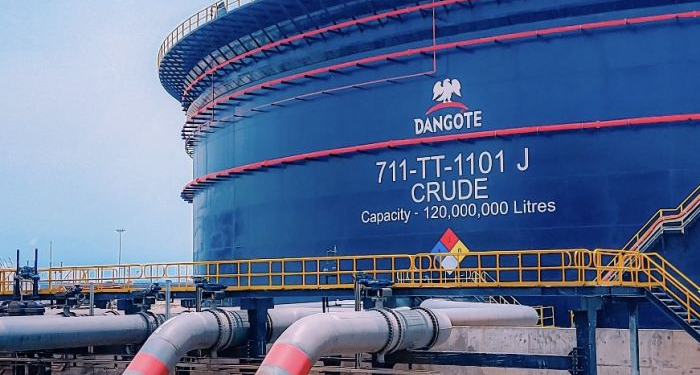The Nigeria’s energy sector received a boost as the 650,000 barrels-per-day Dangote Refinery has officially commenced petrol processing, marking a major milestone in the country’s quest for fuel independence.
An official from Dangote Industries Limited confirmed that the refinery, which has been eagerly anticipated by millions of Nigerians, has started processing petrol. This development is expected to alleviate the persistent fuel shortages that have plagued major cities across the nation.
“We are testing the product (petrol), and subsequently, it will start flowing into the product tanks,” said Devakumar Edwin, Vice President at Dangote Industries Limited, confirmed.
The Nigerian National Petroleum Company Limited (NNPC Ltd), the country’s sole importer of gasoline, is set to be the exclusive buyer of the refinery’s products. This partnership is expected to significantly boost NNPC’s ability to meet local demand and stabilize the fuel market. “If no one is buying it, we will export it as we have been exporting our aviation jet fuel and diesel,” Edwin added.
The commencement of petrol processing at the Dangote Refinery comes after several delays. Initially, the refinery was expected to start supplying petrol to the Nigerian market by June. However, various setbacks, including a fire incident in July, pushed the timeline further. Despite these challenges, the refinery has now made substantial progress, with company officials confirming that petrol will soon be available.
Anthony Chiejina, Group Chief Branding and Communications Officer at Dangote Industries has also confirmed that the refinery has commenced processing.”
Read also: Suspected Boko Haram attacks Yobe Village, burns homes and shops, many feared dead
This development is crucial as Nigeria has faced repeated fuel shortages, exacerbated by NNPC’s struggles to keep up with domestic demand. The Dangote Refinery’s petrol production is poised to provide much-needed relief and reduce the country’s reliance on imported fuel.
The journey to this point has not been without controversy. The Dangote Group has faced challenges from international oil companies, accused of sabotaging the refinery’s operations by withholding crude supplies or selling at inflated prices. Additionally, the refinery has clashed with Nigerian petroleum regulators, who accused it of producing diesel with higher sulphur content than allowed.
In response, Aliko Dangote, President of Dangote Group, refuted these claims by demonstrating in a live lab test that the refinery’s diesel had lower sulphur levels than imported samples. The Federal Executive Council (FEC) later intervened, directing NNPC Ltd to resolve disputes over crude oil sales to local refineries, emphasizing that transactions should be conducted in naira.
With the Dangote Refinery now processing petrol, hopes are high that this facility will transform Nigeria’s fuel supply chain, stabilizing prices and ensuring a more reliable fuel distribution network. As the refinery ramps up production, all eyes will be on its impact on the local market and the broader Nigerian economy.
The Dangote Refinery had already commenced the production of diesel and aviation fuel earlier this year, with significant shipments of crude oil received to kickstart operations.






